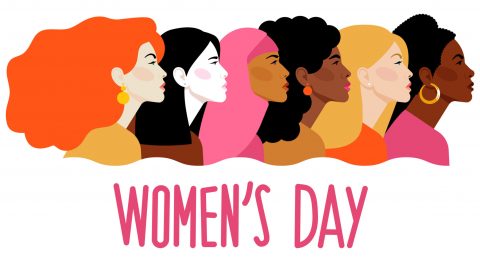The Need to Educate Canadian Financial Institutions Regarding Economic Abuse
Historically, many a study conducted including one by Thomas McCabe, Ph.D., 1991, discloses how individuals react differently to major life traumas or “psychosocial stressors” and how some individuals, given a failure to learn from their mistakes, inadvertently set themselves up for revictimization. The study deduced a “V” pattern amongst these individuals. Ultimately the “V” pattern became symbolic for what is known as the “Super Victim Syndrome”. What does one do, however, when they are not falling into these types of behaviors, are attempting to move forward in a healthy fashion yet, are repeatedly being revictimized by others or outside influences? Such is the case of the banking institution in their dealings with victims of economic abuse.
This is not just a Canadian issue. In fact it is a global issue. While it is difficult to believe in this modern age with all the sensitivity and mental health awareness training available this discrimination exists we need to remind ourselves the “practice of finance” leaves little room for a focus on this awareness. In fact, countries such as Australia have been transparent about this deficiency in its’ banking institutions. In an article appearing in The Conversation, January, 2019, The Royal Commission into Misconduct in the Banking, Superannuation and Financial Services Industry admits that in formulating its Final report the Commission determined:
“During its hearings there was an important problem that it has missed. Banks and financial service providers are failing to adequately recognize the warning signs of economic abuse and family violence experienced by customers. In the ‘Land Down Under’ nearly 16% of women had a history of economic abuse and 7% of men.”
On the other side of the equator; the United Kingdom is also experiencing staggering statistics of economic abuse amongst its population: “Nearly two out of five UK adults – approximately 20 million people – have experienced economically abusive behavior in a current or former relationship.” The Stylist, October 2020.
Canada has its own issues surrounding the reality of statistics of intimate personal violence and validates, as well, the reality it poses a global concern. A News Release by the Government of Canada, March 4, 2021, discloses:
“Many people living in Canada, especially women and children, are victims of intimate-partner violence (IPV). IPV has been identified as a major global public health concern, linked to intergenerational violence and harmful physical, emotional and economic impacts on victims, witnesses and society as a whole.” (Emphasis Added).
Like Australia and the United Kingdom we see also, in Canada, a reference to rising statistics in intimate partner violence and economic abuse of victims that poses a concern for the Canadian Government. In, Toronto, economic abuse is abundant.
A recent report issued by the Canadian Center for Women Empowerment (CCFWE), shows 80% of survivors reported that their abusers’ behavior during the pandemic became more controlling, more manipulative, and more coercive concerning their financial and economic situation. 60% of women reported an increase in the current/ex-partner controlling the financial choices and decisions during COVID-19, as opposed to pre-pandemic. During the pandemic, women deemed financial institutions as most unhelpful. This speaks to the lack of preparedness that financial institutions have when dealing with victims of economic abuse. “Chandrarajan, N, Bedard, T, Thomas, P, Lucente, G, Haileyesus, M. (2021). Access to economic resources of economic abuse victims during COVID-19 in the national capital region, Canada. Canadian Centre for Women’s Empowerment, 2021”.
The report is super informative, it opens one’s eyes regarding manipulation tactics of abusers and shares several victim accounts and stories.
How does economic abuse occur to victims of family violence, affect credit ratings, result in denied loans and/or in the worst-case scenarios cause foreclosure on a home for victims of family violence?
“Here are some of the ways in which it happens:
- A victim of family violence can be forced to seek a loan that only benefits the perpetrator or to guarantee a loan made to the perpetrator
- A loan can be made to the victim and perpetrator jointly, but only the victim might make repayments
- After the violent relationship ends, the perpetrator might not contribute to repayments, and the bank might move to sell mortgaged property
A victim might have difficulty obtaining information about a loan held in the perpetrator’s name which is secured by a mortgage over a family asset.” The Conversation, Canadian Edition, January 2019.
What are some of the solutions banking institutions can better implement to protect domestic violence victims from economic abuse? Well, be it Australia, the United Kingdom or Canada, all three countries agree an increase in education and training of bank employees focusing on awareness and warning signs would enhance economic abuse awareness before the economic abuse occurs. This would be a significant step in the right direction and is frankly, becoming essential. In fact, this is validated in The Conversation and suggests “Where violence is identified or suspected, a set of automatic protocols should whirr into place”. Agreeably, this notion would start a “red flag process” at the outset of any banking endeavors including opening a joint account.
Other suggestions in The Conversation article include:
“For joint loans and guarantees in the name of family members who do not benefit, banks and other creditors should have a legal obligation to warn the person taking on the obligation of the importance of obtaining independent advice. The code of practice should mandate information provisions about family violence.”
Using advanced technology as a prevention tool: in the United Kingdom, MONZO Bank has developed an ingenious way to alert the bank a customer may be a victim of domestic violence and/or economic abuse. The aide increases the capability of victims, increasingly suppressed by COVID stay at home restrictions, the opportunity to alert the bank:
“Unlike any other bank, MONZO has introduced a technological tool designed with survivors in mind – in-app traceless messaging. The trailless “share with us” feature allows customers to discreetly notify the bank of their situation or to raise concern over any particular transactions. This means no phone calls are required. Since 2018, the feature has been used 2,500 times.”
“As an additional safety factor, MONZO’s messaging provides an option to create a ‘code word’ to alert the police. Customers can set up a phrase privately with MONZO, such as ‘my chip and pin are broken’, to alert the emergency services on the survivor’s behalf. The process is designed to appear inconspicuous so not to alert potential abusers to the activity being reported.” – Wired Magazine, United Kingdom, September 14, 2020.
While we are learning the prevention measures being taken by our European counterparts regarding this global epidemic we have yet to see what steps Canada intends to take on further ensuring preventions are put into play for Canadian banking institutions to decrease the number of victimization cases of economic abuse. While the Government of Canada is certainly scrutinizing the rising statistics in domestic violence more research into the issue of inadvertent economic abuse by banking institutions towards domestic violence victims needs to be mandated. Greater steps towards educating our banking institutions and their employees to easily spot and identify potential economic abuse need to be implemented. Plans and programs need to be put into place be they through increased education awareness training, technology, as in the case of MONZO Bank, or through an automatic flag system where a customer can “discreetly” alert the bank they are, or may be, at risk. This would be particularly helpful in situations of economic “coercion” of a partner.
Economic abuse not only effects domestic violence victims it also effects families, extended family(ies) and children. Truly it also effects our banking institutions and most significantly can add to fluctuations in our economy.
The Canadian Centre for Women’s Empowerment is doing its’ part in recognizing the need to increase awareness about economic abuse and intimate personal violence. They have, in fact, recently submitted Policy Recommendations “For the Banks, Credit Unions and Financial Institutions on Addressing Economic Abuse in the Context of Family Violence in Canada”.
July 2021. The Policy Recommendations have been sent to: the Financial Consumer Agency of Canada, primarily, including the Canadian Banker’s Association, a member of Parliament, the Minister of Finance, as well as several other agencies. The Recommendations are a call to action by the CCFWE to educate banking institutions about the need to research and develop programs that prevent economic abuse.
“We learned that economic growth and environmental protection can and should go hand in hand” Christopher Dodd.
@CorinneF50,









